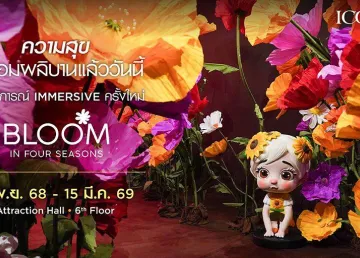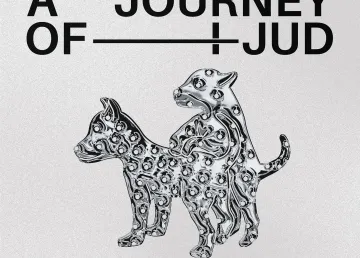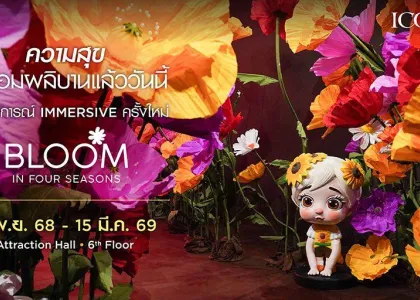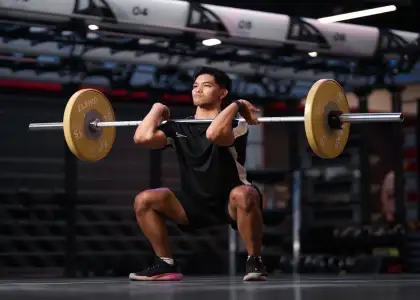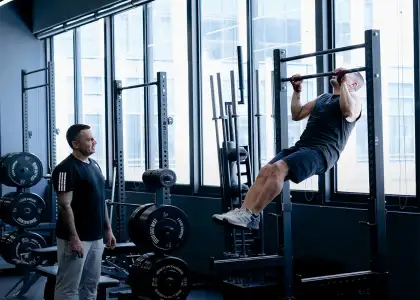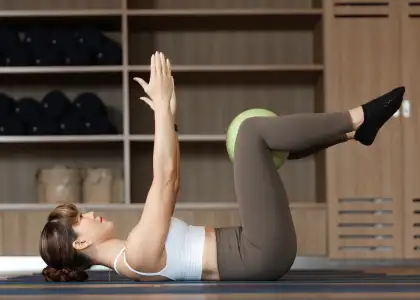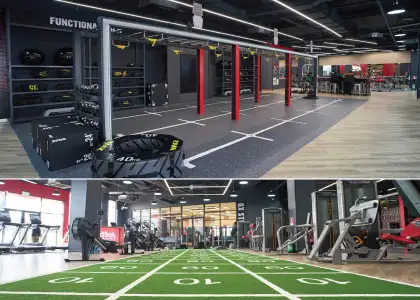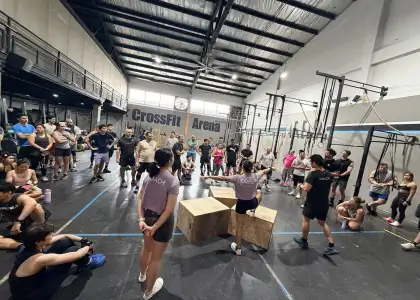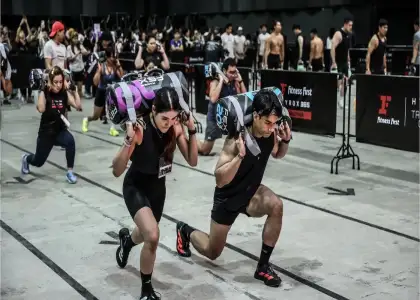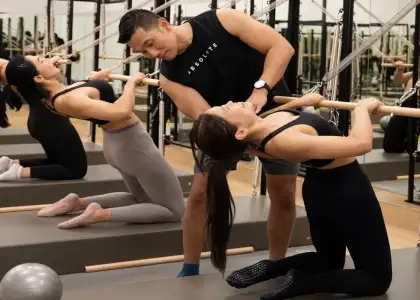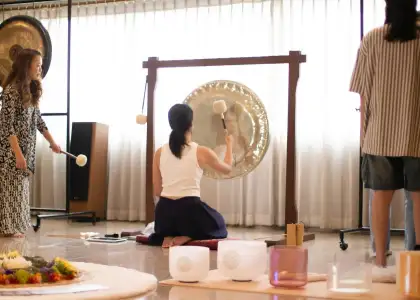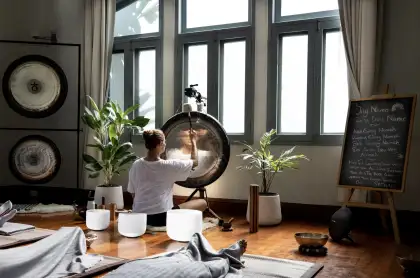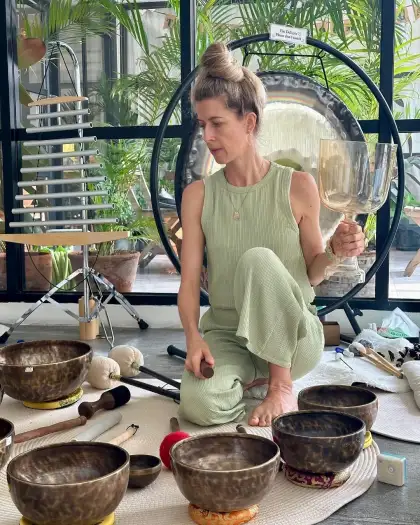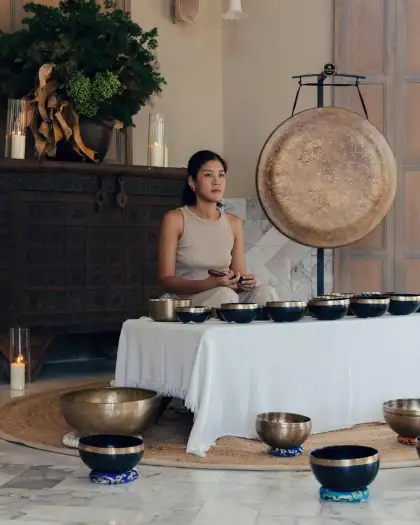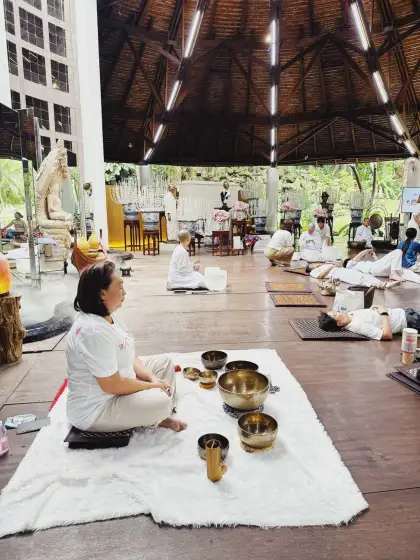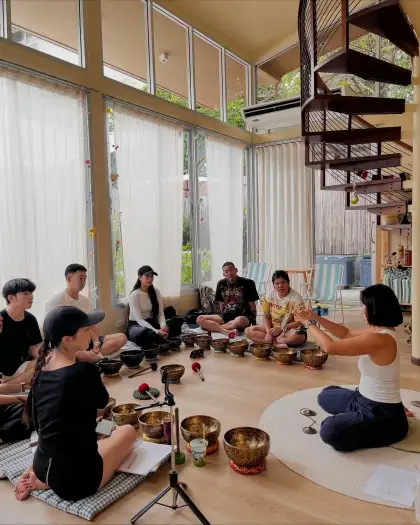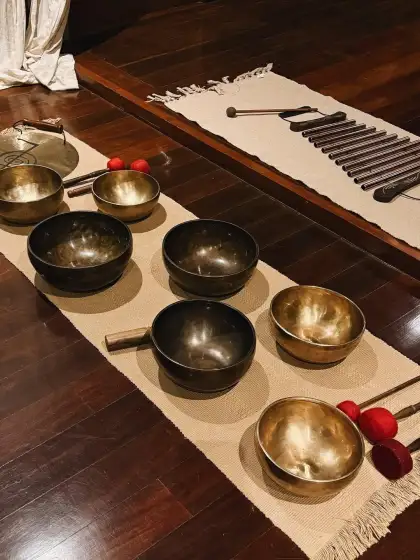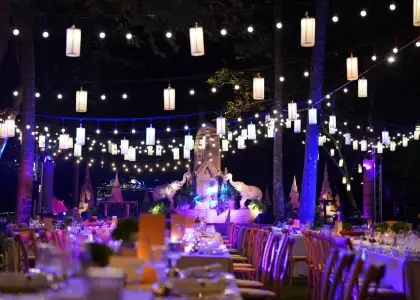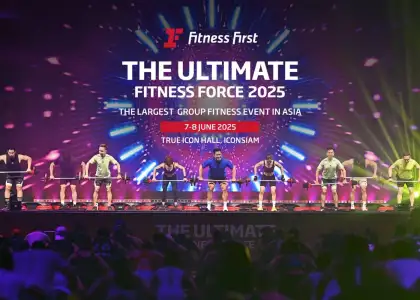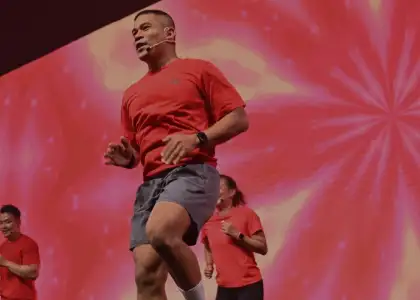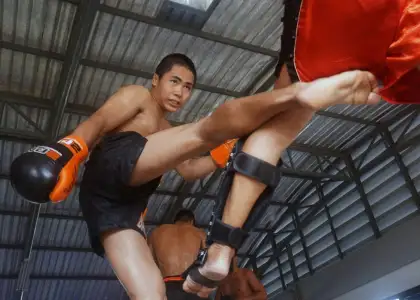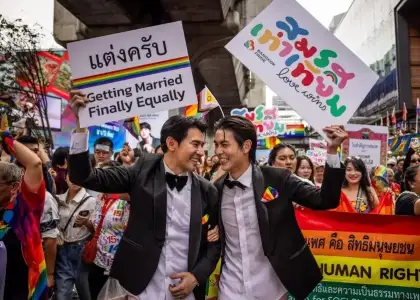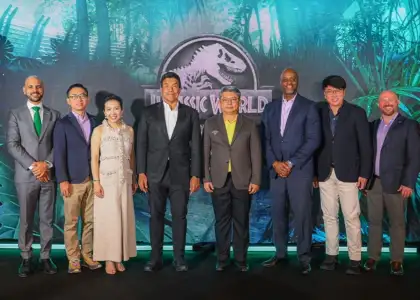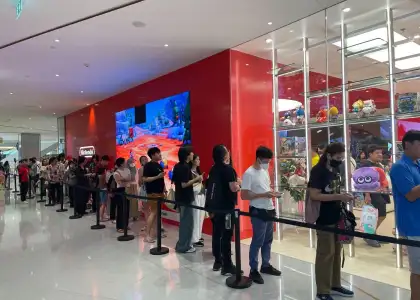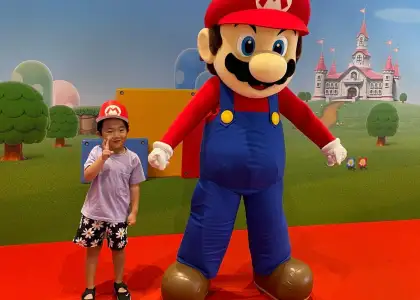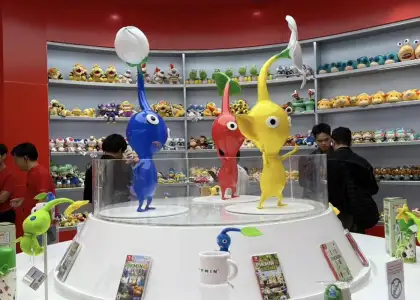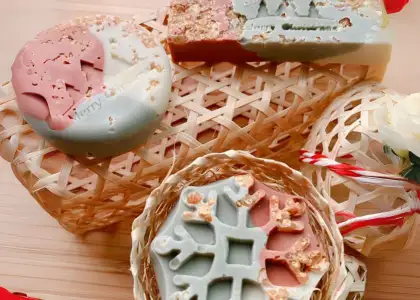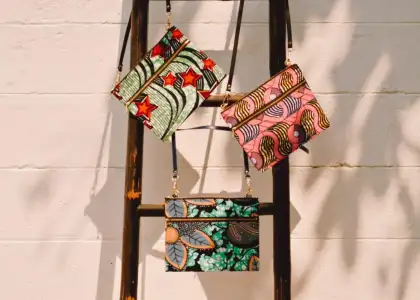Menstrual Justice Advocate Pear Chotbunwong Tells Success Story of H.E.R.
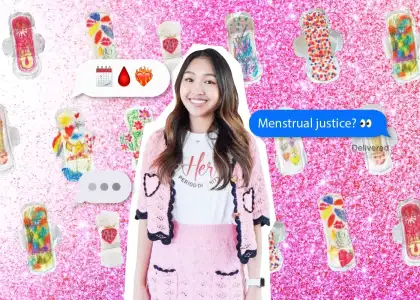
They say don’t judge someone until you've walked a mile in their shoes. Let’s be real: Each of us navigates unique challenges, and for many women, the intricacy of reproductive health adds an extra layer to life's rollercoaster.
Women frequently face distinctive health challenges associated with their reproductive well-being. Menstruation, pregnancy, childbirth, and menopause all throw in physical and emotional curveballs. And as if that's not enough, conditions like PCOS, endometriosis, and fertility issues can seriously complicate a woman's healthcare journey. It's a lot to navigate, no doubt!
In June 2023, the World Health Organization (WHO) published a report showing that Polycystic Ovary Syndrome (PCOS) impacts an estimated 8% to 13% of women in their reproductive years, with a staggering 70% of affected women globally remaining undiagnosed.
For those not in the know, PCOS is a common hormonal condition among women between 18 and 44 years old. It is where the uterus produces excess androgen, or male sex hormones, which are typically present in women in small amounts.
Manyasiri “Pear” Chotbunwong, a freshman student at Stanford University in California, is no stranger to this kind of struggle. When Pear got diagnosed with PCOS, which led to her losing her period for eight consecutive months, she turned that experience into a force for good by founding H.E.R. Period Dignity (Health. Equity. Respect.). It is a non-profit organisation that champions menstrual hygiene accessibility by providing sustainable period products but also throws in a mix of education, healthcare, and employment for women.
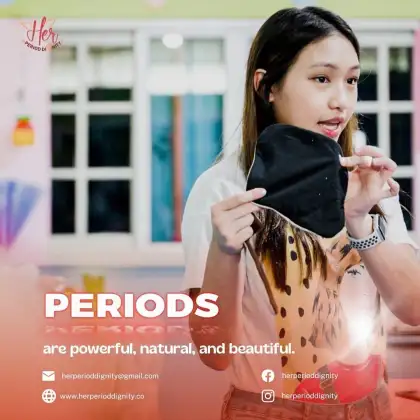
The Beat Asia got the lowdown from Pear herself who shared insights into her life as a youth advocate dedicated to working with marginalised communities, how she champions menstrual justice in Thailand, and so much more.
“I was extremely ashamed of my body and scared of discussing my issues with anyone, even my female friends. My gynecologist prescribed me hormone medications, and while I was taking them during lunch at school, people were asking me what the pills were for. I whipped up all my courage to tell them the truth, and the table erupted in conversation. To my surprise, many people were going through the same challenges as me, and they too were fearful of bringing them up or addressing them head-on due to the taboo surrounding periods and women’s health in Thailand.”
After going through this experience, Pear decided to speak to former female inmates at the NGO she was working with. She began to have a real eye-opener on the fact that a bunch of women and girls were unable to access not only menstrual education but also, heartbreakingly, the basic human necessity of period products.
Breaking the Stigma
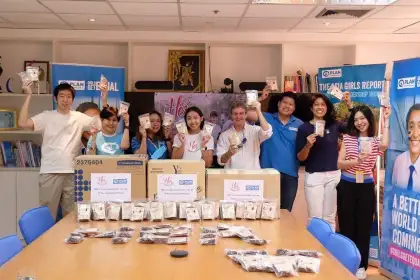
Whether breaking those stereotypes or debunking misconceptions, dismantling stigmas is crucial to Pear’s advocacy, but it's not all sunshine and rainbows, as there are challenges on the road to change.
“I’ve met many people who would simply judge me by face value or by my age. It can sometimes be frustrating when the things you are trying to say don’t seem to hold the same importance, and when you know in your heart that your voice should be equal to everyone else and what you are saying is the harsh truth... That’s why in a lot of my talks I ask the question, ’Who here is someone who menstruates or knows someone or loves someone who menstruates?’ Usually, this is a good introduction because everyone’s hands should shoot up.”
Her mission is to show everyone that periods are not just a women’s issue; it’s a human rights issue that concerns everybody, even those who do not have a vagina. To achieve this goal, she created safe spaces for period conversations to be heard. These conversations unfold in various settings — be it within educational institutions, events like exhibitions and workshops, or in companies or factories. These safe spaces not only facilitate dialogue but also offer a wealth of information and education, making the community more clued in and empathetic.
“I think the best way to address them is with compassion and empathy. I want to try and understand their perspective in the hopes of changing it. There is no point in violence or arguing for the sake of it. I usually keep an open mind and remind myself that there is no opinion too difficult to change if only we approach it with respect and regard for the other person.”
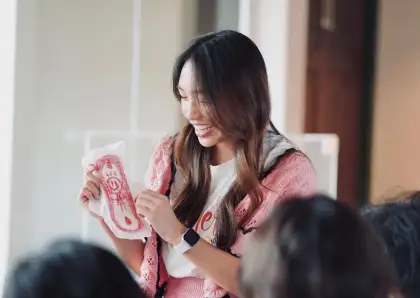
As a menstrual justice activist, one of the memorable experiences that strengthened her commitment to this cause was when she teamed up with her school’s health department to incorporate menstrual disorders into the curriculum. Recognising a gap in the education system, she championed the transformation of the menstruation lessons from being an exclusive girls-only club into an inclusive co-ed session. Now, all students, regardless of gender, can learn about periods together without those awkward barriers.
“This might seem like a small-scale thing compared to the global-scale non-profit, but I believe it’s these small changes and steps that we foster and create in our communities that lead to bigger ones.”
Pear is not just Thailand’s average menstrual justice advocate, as she’s upping the game on a whole other level. Spreading hope like confetti, she’s also passionate about being part of the Youth Voices Advocate who support young people, especially those in marginalised communities, through their abilities and talents for a greater cause.
“My passion for supporting young people has changed from seeing how I can grow my impact to helping others grow theirs too, because I believe that youth advocacy is a whole ecosystem that, if we flourish and thrive, we all thrive together... It can be tough at times especially when your advocacy reaches a wider audience, you will definitely face criticism, so therefore, it’s important to stay grounded and have faith that with your good intentions, good attitude, and hard work, you will be able to tackle the issues that you care about most.”
Marginalised communities are an intricate blend of individuals with diverse identities, backgrounds, and needs, making them complex. When asked about how she managed to work and gain the trust of these communities, Pear shared with The Beat Asia that she opts for a familial connection. To her, it's about treating them not just as a group but as a family who engages in conversations that go beyond the surface level—more like chatting with real sisters and brothers.
“We’re all humans, no matter where we come from, what language we speak, or what god we believe in. I share my story and listen to theirs because I am genuinely curious to learn what are the challenges that they have to face in their daily lives and even those specific to their communities and cultural context. I think trust has to come first from establishing a genuine friendship, and friendship comes from the heart, and that takes a lot of kindness, tenderness, and compassion. You can’t fake it. It has to come from inside you. It has to be real.”
H.E.R.’s Sustainable Pads
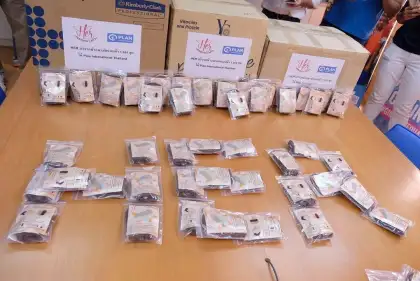
Ditching the disposable and embracing the eco-friendly, H.E.R.’s sustainable menstrual products have revolutionised the way we approach period care.
H.E.R. pads are perfect for day and night. They are comfortable, eco-friendly, cost-effective, and can be used for up to five years. The buttons on the ends of the wings help hold the pad in place, so it doesn’t move in your underwear. The front is made from organic cotton which helps to quickly absorb period blood, and the back is made from water-resistant fabric to prevent leakage.
With numerous reusable pads on the market, what sets H.E.R.'s products apart from others is their process. These products have been uniquely tested and have gone through multiple prototypes before becoming what they are today. As the CEO, Pear wanted to make sure that their pads addressed most, if not all, of the consumers’ pain points and incorporated the benefits of current-quality pads on the market.
Moreover, H.E.R. menstrual pads are adjustable and adaptable to different heaviness of period flow. They have a back pocket that can hold up to three reusable absorbent liners that will help increase the absorbency of the pads.
They also offer the H.E.R. sugarcane-fiber pad as an option for one of the liners that can be inserted into the reusable pad. The sugarcane-fiber pad is four times more absorbent than the average liner, 100% biodegradable, and has been FDA-approved.
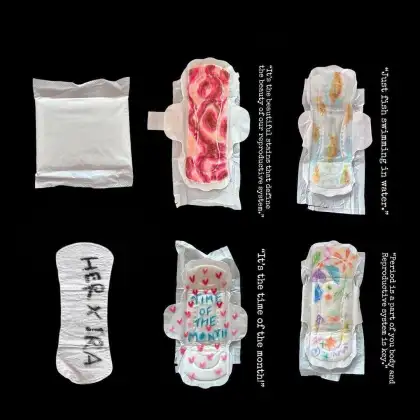
Global Recognitions
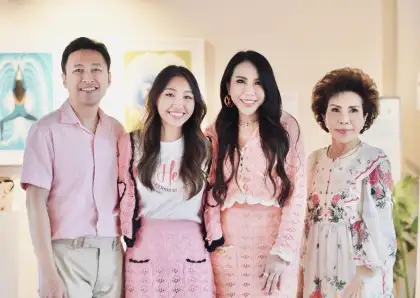
As a global youth-powered organisation, H.E.R. has earned accolades from renowned platforms such as Forbes Thailand 30 under 30, Public Service Winner of Women of Future, and Canon Young Champion. Adding to its prestigious list of awards is the organisation's first-ever international recognition bestowed by the revered Diana Award, established in memory of Diana, Princess of Wales.
“Starting my non-profit [organisation], I never expected to receive any sort of recognition. I didn’t even know about the Diana Award until a friend of mine recommended it to me as a way to amplify our impact and bring awareness to our cause.”
At first, she was uncertain about what to anticipate from her nomination, especially with so many outstanding youth organisations in the running. However, she said simply being nominated alongside such incredible groups was an honour in itself.
“[B]ut to go so far as to be recognised as one of the awardees on the list fills me with so much joy and hope that our work and our impact meant something. That was the moment I believed H.E.R. could truly become an organisation that was helping to transform the lives of many girls out there. This was a huge milestone for me because it gave me the faith in myself to grow and expand H.E.R. to what it is today.”
With these awards under her belt, Pear wanted to extend two important messages:
“Firstly, I want to show the world that periods are not a dirty thing or taboo topic. It is so beautiful and makes life possible, and my work is so meaningful to me because it not only changes people’s way of life through education, healthcare, and sanitation, but it also changes the culture itself, debunking false myths that have for so long put a lot of women in danger.”
“Secondly, I want all young people to know that if I can do it, they can do it today. I started as a scared 15-year-old girl who was afraid to talk about her own menstrual disorder. But today, I proudly stand here talking about the very thing I was afraid of. If we know that our work is not just for us alone, but for so many others standing behind us whose voices we represent, it gives us so much courage to take that leap of faith.”
What's Next for H.E.R.?
At present, H.E.R. has over 30 chapters spread across 12 countries, and they hope to double that number in 2024. Pear is also planning a few virtual and in-person events and collaborations with different brands to amplify their impact.
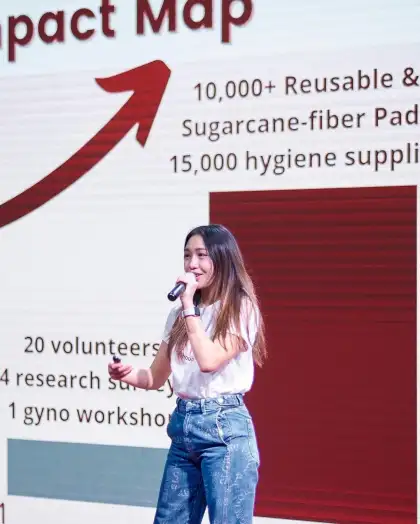
To know more about Pear Chotbunwong, you may follow her on Instagram and visit H.E.R. Period Dignity’s official website to get the latest information.
Get the latest curated content with The Beat Asia's newsletters. Sign up now for a weekly dose of the best stories, events, and deals delivered straight to your inbox. Don't miss out! Click here to subscribe.


